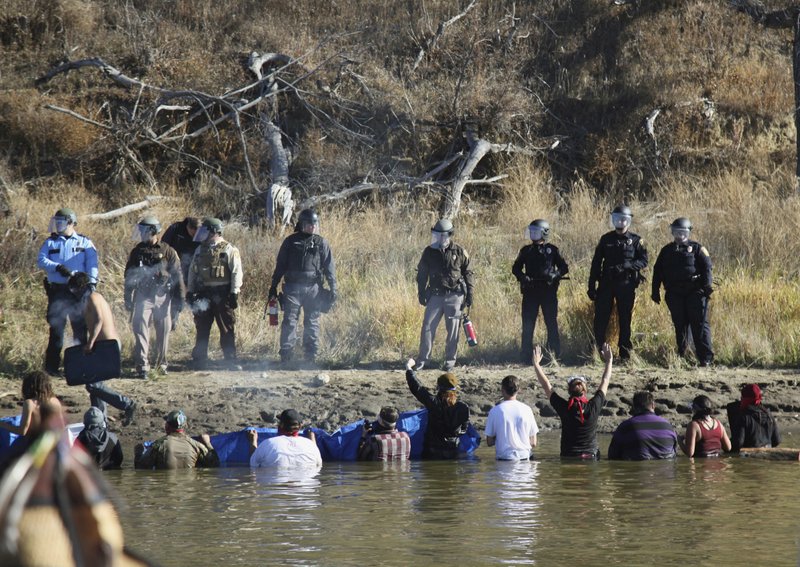BISMARCK, N.D. -- The cost of policing the Dakota Access pipeline protests in North Dakota has surpassed $22 million -- an amount that would fund the state Treasury Department for two decades and $5 million more than the state set aside last year.
Protest-related funding decisions will be made by state lawmakers during the 2017 session. Leaders of the House and Senate appropriation committees say more funding will be approved, though the amount and method isn't known.
Rep. Jeff Delzer says state officials also still hope the federal government will help with funding.
"We're not happy at all that the federal government is not ponying up. This should be their responsibility," said Rep. Jeff Delzer, R-Underwood, chairman of the House Appropriations Committee. "But the fact of the matter is, until they pony up we have to cover those costs."
A large encampment in southern North Dakota swelled to thousands of opponents of the four-state, $3.8 billion project over the summer, and then-Gov. Jack Dalrymple issued an emergency declaration in August to cover law enforcement expenses related to protests. There have been nearly 600 arrests in the region since August, but the encampment has shrunk since Dec. 4, when the Army said study is needed on alternative locations for the pipeline to cross a Missouri River reservoir, as well as study on the potential for a leak and tribal treaty rights.
The Standing Rock Sioux and its supporters believe the project, which is to carry North Dakota oil through South Dakota and Iowa to a shipping point in Illinois, threatens drinking water and Native American cultural sites, which Texas-based developer Energy Transfer Partners denies.
National on 01/11/2017